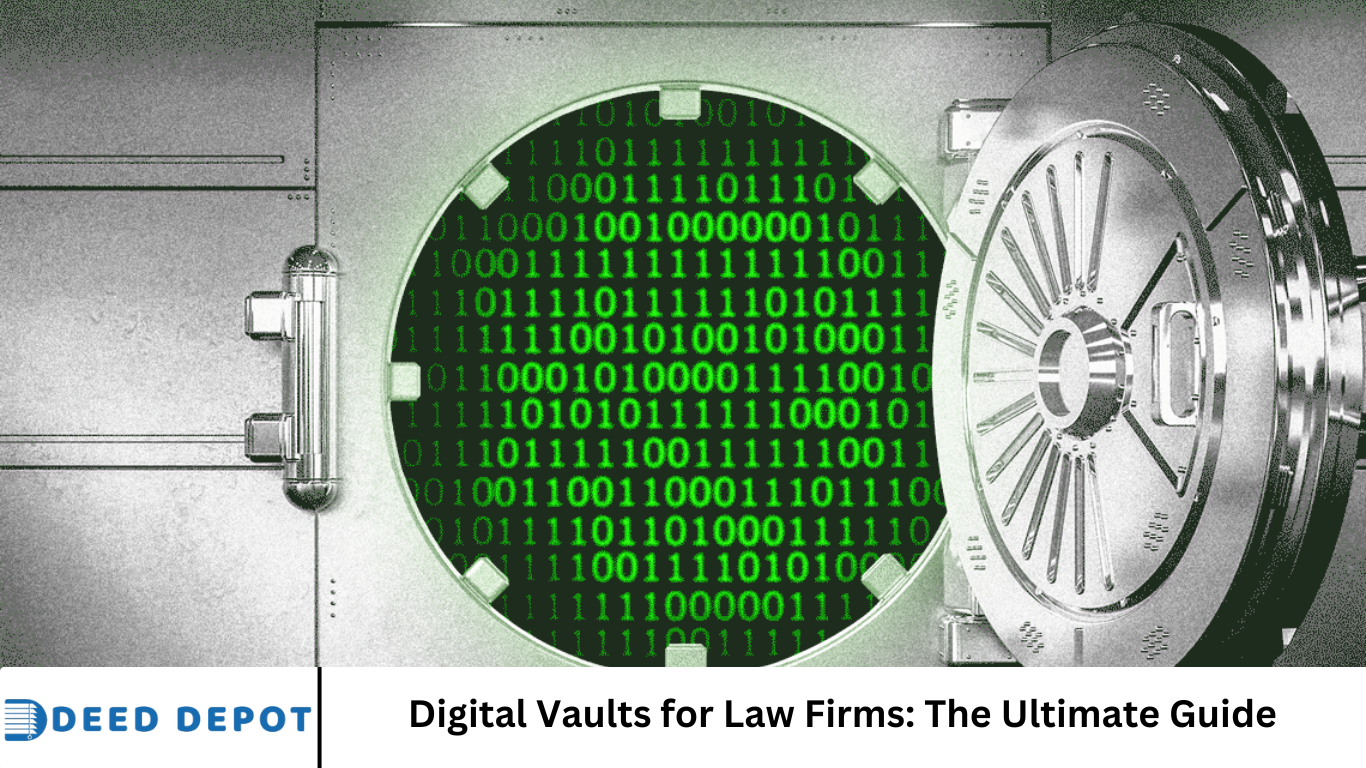In the modern digital era, law firms handle an enormous amount of confidential and sensitive information daily, ranging from client data to case files and financial records. As cyber threats evolve and regulatory requirements become more stringent, ensuring the security of this data is paramount.
One of the most effective solutions for safeguarding sensitive information is the use of digital vaults. This comprehensive guide delves into what digital vaults are, their benefits, how to implement them in law firms, and best practices for maximizing their effectiveness.
More Read: The Advantages and Applications of Secure Vaults
What Are Digital Vaults?
A digital vault is a highly secure online repository designed to store sensitive data, ensuring that it is protected from unauthorized access, cyber threats, and accidental loss. These vaults utilize advanced encryption methods, multi-factor authentication, and access control mechanisms to safeguard digital assets such as client files, legal documents, emails, and other confidential information.
Unlike traditional file storage systems or cloud storage, which may lack the level of security required by legal professionals, digital vaults are specifically designed to meet the strict compliance and security standards that law firms must adhere to.
Why Digital Vaults Are Crucial for Law Firms
Law firms deal with highly sensitive data on a daily basis, from personal client information to confidential legal documents. In this context, data protection is not just a best practice; it’s a legal and ethical requirement. Failing to safeguard client data can result in severe legal consequences, loss of reputation, and damage to client trust.
Here are some compelling reasons why digital vaults are essential for law firms:
- Data Protection: Law firms must protect sensitive client data from data breaches, unauthorized access, and cyberattacks.
- Regulatory Compliance: Legal professionals must comply with a variety of regulations, including GDPR, HIPAA, and industry-specific laws that govern data privacy.
- Operational Efficiency: Digital vaults provide law firms with an organized, centralized system for storing and managing data, leading to smoother workflows.
- Client Trust: Clients expect their attorneys to handle their information with the utmost care and confidentiality. Implementing a digital vault reinforces your commitment to data security.
Benefits of Digital Vaults for Law Firms
Enhanced Security
The primary reason law firms opt for digital vaults is their ability to provide top-tier security. Digital vaults use strong encryption methods (AES-256 encryption, for example), which ensure that stored data is unreadable to anyone without the appropriate access credentials. Additionally, vaults often include features like multi-factor authentication (MFA), role-based access control, and biometric identification to prevent unauthorized access.
Compliance with Legal and Ethical Standards
Law firms are subject to numerous regulations that govern how client data must be handled. These include the General Data Protection Regulation (GDPR), Health Insurance Portability and Accountability Act (HIPAA), and other industry-specific compliance requirements. Digital vaults are designed with these compliance standards in mind and can help ensure that your firm adheres to these laws. Vaults typically include automated compliance features, audit trails, and reporting tools to make compliance easier to manage.
Streamlined Operations
Digital vaults centralize your firm’s data storage, making it easier for attorneys and staff to find and access documents. Traditional paper-based storage methods can be time-consuming and prone to errors, while digital vaults allow for quick retrieval and secure sharing of files. This leads to more efficient case management, document handling, and overall productivity.
Cost Efficiency
While setting up a digital vault may have an upfront cost, it can save law firms significant amounts in the long run. Reducing the need for physical file storage space and eliminating paper handling costs are just some of the financial benefits. Additionally, digital vaults reduce the risk of costly data breaches and legal liabilities, which could otherwise result in fines or damage to your firm’s reputation.
Key Features of a Digital Vault for Law Firms
When selecting a digital vault for your law firm, it’s essential to ensure that it includes certain features to meet the specific needs of legal professionals.
Encryption
Encryption is the cornerstone of any digital vault. It ensures that all stored data is converted into an unreadable format unless accessed with the proper decryption key. Strong encryption methods, such as AES-256, are critical for keeping data secure during both storage and transmission.
Access Control and Authentication
A secure digital vault provides fine-grained control over who can access sensitive information. Role-based access allows you to assign different permissions to users based on their role within the firm. For example, paralegals may have access to certain documents, while only senior attorneys can view more sensitive files.
In addition, multi-factor authentication (MFA) enhances security by requiring users to provide more than just a password to gain access. This can include one-time passcodes sent to their phone, biometrics, or physical security keys.
Audit Trails
Audit trails track every access and action performed on a document within the digital vault. These logs are crucial for compliance purposes and help to detect any suspicious or unauthorized activities. Law firms can use audit trails to monitor who accessed a document, when it was accessed, and what changes were made, providing complete transparency.
Disaster Recovery and Backup
Data loss can be catastrophic, especially when dealing with important legal files. Digital vaults offer backup and disaster recovery features that automatically create copies of stored data. This ensures that even in the event of a hardware failure, cyberattack, or human error, your firm can quickly recover its files.
Frequently Asked Question
What is a digital vault for law firms?
A digital vault is a secure, encrypted online storage system designed to protect sensitive legal data, documents, and client information. It allows law firms to store, organize, and manage digital assets in a way that ensures data security, compliance with legal regulations, and efficient access for authorized personnel.
Why do law firms need digital vaults?
Law firms handle highly sensitive and confidential information, which must be protected from cyber threats and unauthorized access. Digital vaults provide enhanced security, comply with industry regulations, and streamline document management, helping law firms mitigate risks and maintain client trust.
What are the key features to look for in a digital vault for a law firm?
When selecting a digital vault, law firms should look for:
- Encryption: Strong encryption methods like AES-256 to protect data at rest and in transit.
- Access control: Role-based access and multi-factor authentication (MFA) to restrict unauthorized access.
- Audit trails: Logs that track document access and changes for compliance and security monitoring.
- Backup and disaster recovery: Automated backup solutions to ensure data is recoverable in case of failure or loss.
How do digital vaults help with legal compliance?
Digital vaults are built with compliance in mind, featuring automated tools to assist with data retention policies, audit requirements, and reporting needs. They ensure adherence to laws like GDPR, HIPAA, and other industry-specific regulations, reducing the risk of legal penalties and safeguarding client data.
Are digital vaults secure enough to protect sensitive client information?
Yes, digital vaults are designed with robust security protocols, including strong encryption, multi-factor authentication, and access control. These measures, along with continuous monitoring and audit trails, provide a high level of protection against cyberattacks, unauthorized access, and data breaches.
Can digital vaults improve the operational efficiency of a law firm?
Absolutely. By centralizing digital documents in an easily accessible, secure system, digital vaults streamline document retrieval, sharing, and collaboration. They reduce the time spent on managing physical files and help law firms maintain an organized, efficient workflow. This leads to improved case management and productivity.
How can law firms implement a digital vault?
To implement a digital vault, law firms should begin by assessing their data security needs, selecting a vault solution that fits those requirements, and training staff on how to use it. It’s also important to set up a system for ongoing monitoring, maintenance, and compliance checks to ensure the vault remains effective over time.
Conclusion
In an age where data security is paramount, digital vaults provide law firms with a powerful solution to protect sensitive client information, ensure compliance with strict legal regulations, and streamline operational workflows. By offering robust encryption, advanced access controls, and comprehensive audit trails, digital vaults mitigate the risks of cyber threats and unauthorized data access, providing law firms with peace of mind that their digital assets are safeguarded. Beyond security, digital vaults also enhance efficiency. By centralizing documents and enabling secure sharing, law firms can reduce the time spent searching for and managing physical files, thus improving case management and overall productivity. Moreover, they play a crucial role in maintaining trust with clients, who rely on their attorneys to handle sensitive information with the utmost care.


